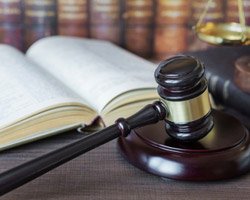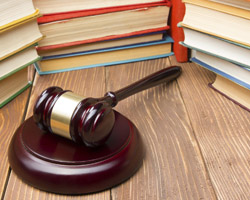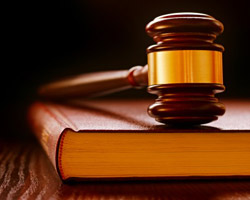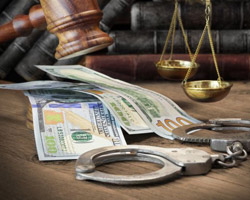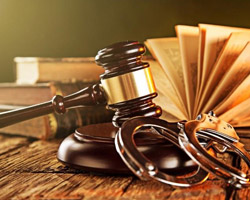All Criminal Law Topics
Learn about some specific types of criminal offenses.
 We all make mistakes. When we do, it is important not to make things worse through ignorance of the law or of our rights. If you find yourself facing criminal investigation or prosecution because of choices you have made, the more information you have about the law, the process, and your rights, the less likely you will say or do something that compromises your defense.
We all make mistakes. When we do, it is important not to make things worse through ignorance of the law or of our rights. If you find yourself facing criminal investigation or prosecution because of choices you have made, the more information you have about the law, the process, and your rights, the less likely you will say or do something that compromises your defense.
GetLegal.com’s Criminal Law Center contains information on a wide range of topics affecting potential criminal defendants, from an overview of the criminal justice system, to some of the specific defenses you can raise to a criminal charge. You will find summaries of your rights under the U.S. Constitution, as well as information on how you can seal or expunge a criminal record.
Connect with Top-rated Attorneys Near You
Sponsored Advertisement
All Criminal Law Topics Practice Areas
Other Criminal Law Topics
What Are the Consequences of a Moving Violation?
Sex Crimes
Is There a Difference Between DWI and DUI Charges?
Criminal Justice System
An Overview of the American Juvenile Justice System
Crimes Involving Theft: Receipt of Stolen Property and Embezzlement
Bankruptcy Fraud
Credit Card Fraud
Crime Classifications and Definitions
Understanding Larceny and Other Types of Theft Offenses
Defenses to Crimes
Electronic Surveillance
Environmental Crimes
Understanding the Nature and Consequences of a Felony Charge
Forfeiture
Fundamental Rights of the Accused
Healthcare Fraud
Internet Fraud
Juvenile Programs
Misdemeanor Crimes
Other Criminal Law
Phone Fraud and Telemarketing Fraud
Search & Seizure Law
Search and Seizure
Status Offenses
Juvenile Court Procedures and Sentencing
White-Collar Crime—What It Is and How It Differs From Other Crimes
Latest Article
What Is a Trust Fund? A Comprehensive Guide
A trust fund is a powerful tool that has stood the test of time. It is an essential instrument in modern wealth manageme... Read More
Arraignment: Meaning, Common Charges, & Process
Arraignment is a pivotal moment within the criminal justice system, marking the formal initiation of criminal proceeding... Read More
What Is Probable Cause? Definition and Examples
The Constitution protects you from being searched without a valid reason. But what exactly constitutes a valid reason? A... Read More
GETLEGAL®ATTORNEY DIRECTORY
Find Leading Attorneys in Your Area
NEED PROFESSIONAL HELP?
Talk to an Attorney
How It Works
- Briefly tell us about your case
- Provide your contact information
- Choose attorneys to contact you







